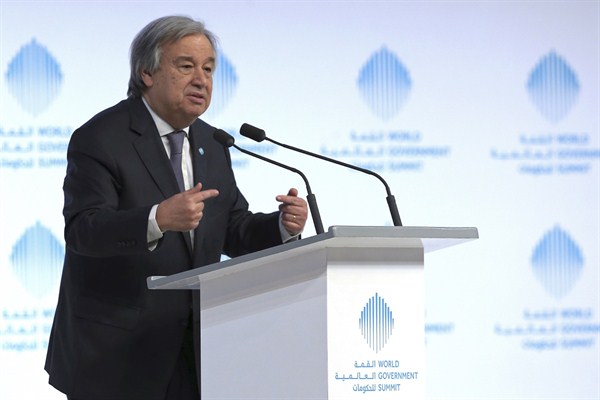Antonio Guterres has a personnel problem. Last week, the U.S. permanent representative to the United Nations, Nikki Haley, nixed the U.N. secretary-general’s nomination of a new envoy to Libya. Guterres had proposed the respected former Palestinian prime minister, Salam Fayyad, for the job. On Friday, Haley released a terse statement saying that she was “disappointed” by the choice, and citing it as a symptom of the U.N.’s bias against Israel.
The U.S. maneuver is simultaneously tokenistic, destructive and liable to backfire.
The Bush and Obama administrations invested a great deal in Fayyad as one of the few Palestinian politicians they trusted. It is not clear how publicly belittling him serves Israel’s interests. Fayyad is a specialist in building up state institutions, skills that are sorely needed in Tripoli and Benghazi. In blocking him, the Trump administration implies that it is not all that serious about ending the Libyan conflict.

